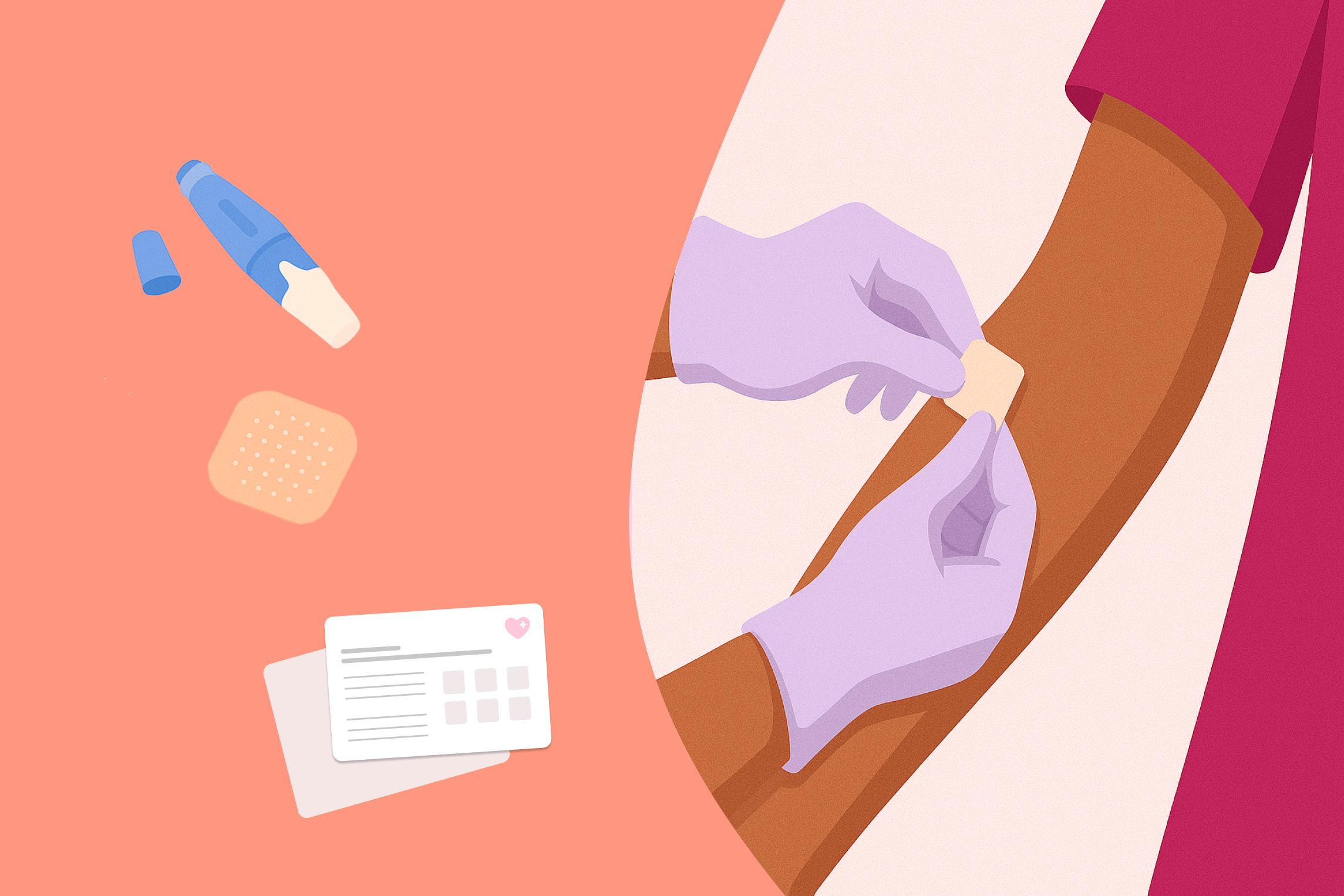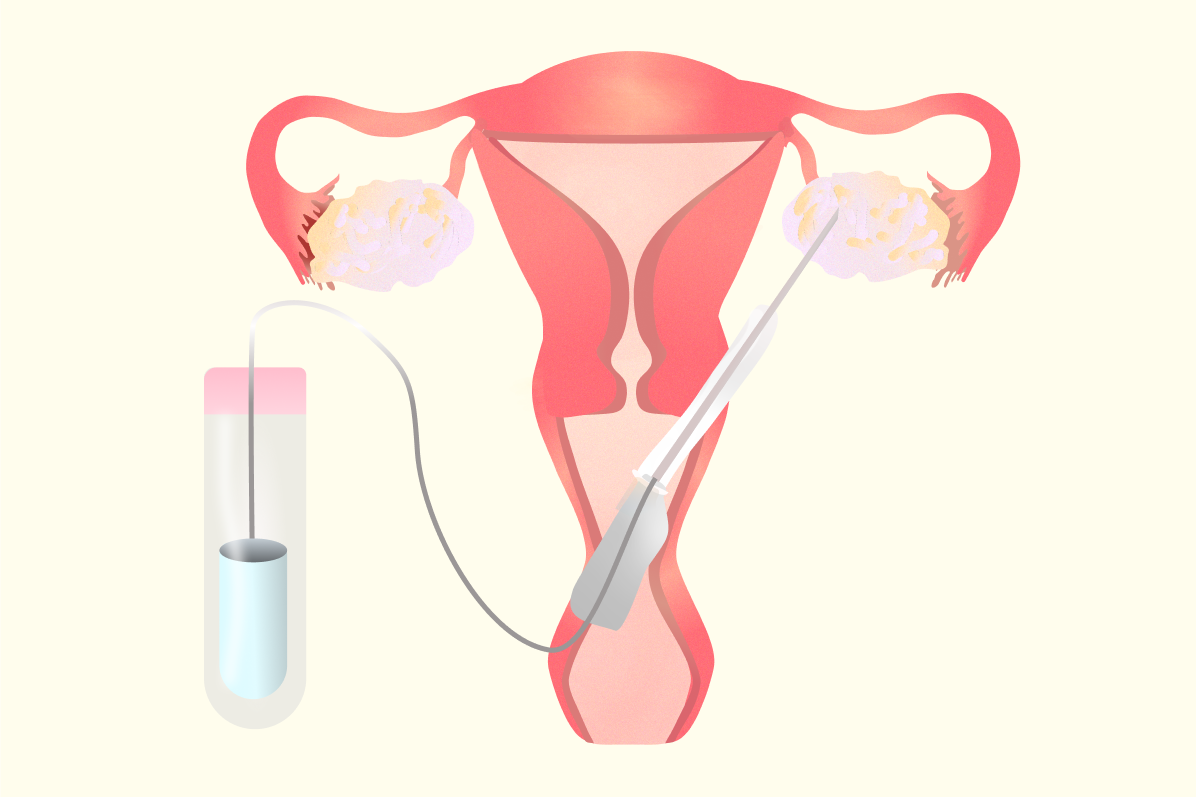Contents
- How many eggs should I freeze for my age?
- Does egg quality affect the number of eggs frozen?
- Factors that affect the number of eggs frozen
- How many eggs to freeze in your 20s
- How many eggs to freeze in your 30s
- How many eggs to freeze in your 40s
- How many eggs should I freeze per cycle?
- What is the best age to freeze your eggs?
- How many eggs should I freeze calculator
- Egg freezing success rates by age
- Find an egg-freezing clinic near you- with Amilis
In an eggshell...
- Number of eggs to freeze varies by age: Younger women need fewer eggs due to higher quality, while older women may need more to account for increased abnormalities
- Factors impacting egg freezing success: Egg quality, age, clinic success rates, ovarian stimulation protocol, and underlying health conditions all influence outcomes.
- Optimal egg numbers by age group: 8-10 eggs in your 20s, 12-15 in your 30s, and 20-30 eggs across multiple cycles in your 40s to account for declining egg quality and quantity.
If there was a contest for the most asked question, this would probably take the cake.🍰
And for the right reasons.
And to be honest, there’s no one-size-fits-all answer to this either.
This is because there are a lot of factors that weigh in and impact the success of your egg-freezing cycle.
So, we’re discussing all of these, and answering your questions on the number of eggs to freeze by age too!
Read on!
How many eggs should I freeze by age?
“The older you are , the more eggs you need to collect and freeze because a higher percentage of them will be abnormal”
says Dr Vivienne, our medical advisor.
This is because the number of eggs you freeze have a lot to do with their quality as well.
And by quality, we mean the genetic material that these eggs carry.
But what’s with this connection, and is this the only thing that affects it?
Let’s do a debrief, first.
Does egg quality affect the number of eggs frozen?
In short, it does. Your egg quality plays a huge role in determining how it survives inside the ovaries, as well as outside, during egg freezing.
We also had a chat with Dr Vivenne to understand this better.
“It is essential to explain what we mean by egg quality” she says, “Generally when the term is used before treatment of any sort we are talking about genetic quality (normal chromosomes) of eggs which changes with age and happens to all” she says.
That’s right. That’s me, you and every other woman. It’s natural for the genetic quality 🧬 of our eggs 🥚 to decline with age.
In most cases, the genetic problem comes from the older eggs, hence the advice to freeze eggs sooner rather than later.
And by genetic problems we mean incidences such as miscarriages or having more common chromosomal problems in eggs (such as Down's syndrome) increases with age.
“But, there is more to life than DNA,” says Dr Vivienne. “The other thing which affects an egg’s competence is metabolic health. It is possible that various things such as smoking, diet, diabetes, PCOS and hormones, thyroid function and even how carefully the ovaries have been stimulated for egg freezing, may all affect the chances of an egg eventually becoming a healthy baby”.
Hence, the emphasis. The older you are, the decline in quality and quantity of eggs accelerates, thus better to collect and freeze them sooner.
Factors that affect the number of eggs frozen
👩🏻 Age
Depending on your age, the goal of the number of eggs to freeze may vary. Someone in their 20s may retrieve fewer eggs but have a good outcome due to the better egg quality at that age. For someone in their 40s, the situation may not be the same.
🏥 Clinic success rates
Choosing the right clinic is key as their record if egg-freezing cycles and success rates play a role in how your egg-freezing cycle outcomes play out.
This is also what Dr Tim from Lister Fertility says:
“At times, eggs may not survive the warming process after freezing. This is why It's best to ask the doctor how many egg freezing cycles they do, and what their egg thaw survival rates are like”.
Being transparent during the consultation process is encouraged and can help you decide the right clinic.
💰 Cost
The average cost of one egg-freezing cycle in the UK can be around £6450. In London alone, it can range from £5000-7000. Based on your choice of funding the treatment and doctor recommendations you may have to decide between a single cycle or multiple egg freezing cycles.
Ovarian stimulation protocol
The dosage of the medications used in the stimulation protocol also affect the number of eggs retrieved. Some may need higher doses, and in some cases, the body may not respond effectively. Doctors often work around these situations, and create personalised ovarian stimulation protocols that help maximise egg yield.
Underlying conditions
If you have low ovarian reserve or genetic conditions that affect ovarian function, your healthcare provider may discuss the chances of retrieving less eggs per cycle.
How many eggs to freeze in your 20s
Freezing around 8-10 eggs is ideal, but people in this age group tend to freeze an average of 10-15 eggs per cycle. In this age range, especially late 20s is when your eggs are in their prime quality, resulting in higher chances of live birth per egg. You may also need lesser cycles as the number of eggs collected and their quality will be higher.
How many eggs to freeze in your 30s
The number of eggs you freeze in your 30s depends on whether you’re in your early or late 30s. It’s recommended to freeze about 12-15 eggs.
How many eggs to freeze in your 40s
Women in their 40s generally have less than 25% of the normal number of eggs. At this stage, the survival rate of each egg also decreases. Hence choosing the right ovarian stimulation protocol and freezing around 20-30 eggs over multiple cycles is recommended.
How many eggs should I freeze per cycle?
The number of eggs to freeze per cycle depends on age and all the factors that can affect the cycle. On average, you will be able to freeze anywhere from 4-12 eggs per cycle.
What is the best age to freeze your eggs?
“There’s no cutoff to egg freezing, in terms of age”
says Dr Tim from Lister Fertility.
But as we discussed above, the younger, the better.
However, when you do have your doctor’s visit, you will be briefed on the statistics on how many eggs you can retrieve per cycle, as per your age.
“Knowing this information, it’s also their decision to move forward with the procedure and the number of cycles needed” says Dr Tim.
The baseline? There needs to be more awareness around the best age to freeze your eggs at.
“As doctors we’re also rethinking family planning to not just centre it around conception but also on AMH, egg quality when women are getting their blood work done” says Dr Tim. “There needs to be way more awareness as women don't know what their options are even regarding fertility testing”.
That’s what we at Amilis are striving for as well. A future of transparent, accessible and affordable female fertility 🙌🏼,
How Many Eggs Should I Freeze Calculator
If you’re looking for a calculator that can estimate how many eggs you should freeze depending on your age and AMH, we’ve got you covered:
While this is a calculator than can estimate the number of eggs to freeze, your personal protocol and medical history along with other factors contributes to the final number.
Egg freezing success rates by age
The success of your egg-freezing cycle depends on the live birth rate. It is calculated by dividing the number of live births (or babies carried to full term) by the number of eggs frozen.
The medical journal Fertility and Sterility published research in September 2017 offering some rough numbers:
And while older statistics from the HFEA suggest about 18% of cycles where a woman’s own frozen egg was fertilised resulted in a live birth, the figures are now on an upward trend.
A recent study published in the journal Reproductive Biomedicine online shows that the cumulative live birth rate after the transfer of all embryos created from the thawed eggs was 34%, rising to 45% in those who had frozen their eggs before the age of 36!
This provides realistic expectations and also challenges the figures from older studies- a win-win and empowering for all considering egg freezing!
Find an egg-freezing clinic near you- with Amilis
The clinic you choose is a crucial factor that also weighs in on the total number of eggs you freeze.
Because apart from your efforts, it also comes down to the type of protocol used, the medication and the way of handling the eggs in the lab, as well as their survival post-freezing.
To ensure you have all these in place for your egg-freezing cycle, we’ve partnered with some of the best fertility clinics in the UK to bring you the right resources.
Here’s how:
- Book free consultations with some of the best egg-freezing clinics in the UK
- Free consultations with fertility specialists near you- based on your health concerns
And if you’re just looking to get your fertility tested, we’ve got you covered too 🫂
- Let’s start with fertility testing- We offer fertility testing, hormone and PCOS panels at half the price that clinics offer, via Randox, with minimal to no wait times. You can choose to get tested at a nearby Randox clinic, at your schedule.
- You also get a personalised, free AMH and hormone report, and free mini consultations with our expert doctors to discuss next steps
And throughout, you’ll have Amilis experts (that’s us 👋) supporting you on your journey.
Figuring out where to get started? Book a free doctor consultation or take our personalised fertility quiz to know more!
We’re detangling the egg-freezing maze to make it accessible and affordable for millions of women in the UK, one day at a time 💪🏻
Frequently Asked Questions
How many eggs to freeze at 37?
At age 37, most fertility specialists recommend retrieving 8-15 eggs to give you a good chance of having a baby later. This may require 2-3 egg retrieval cycles if you happen to retrieve fewer eggs per cycle. The goal is to collect enough eggs to compensate for the natural decline in egg quality that occurs with age.
What is a good number of eggs to freeze?
A good target is 6-15 eggs for most women, though this varies by age. Younger women (under 35) might need fewer eggs since their eggs are genetically healthier, while women over 38 might benefit from retrieving more eggs to maximize their chances. Studies suggest that retrieving around 15-20 eggs gives roughly a 70-80% chance of having at least one baby, though success rates vary based on individual factors.
How many eggs survive freezing?
About 90-95% of eggs typically survive the freezing and thawing process, thanks to modern vitrification techniques. However, not all thawed eggs will fertilize successfully.
Hypothetically, of the eggs that survive thawing, about 70-75% will fertilize normally. Then, about 30-50% of those fertilized eggs will develop into viable embryos. This is why egg freezing aims to collect multiple mature eggs as it accounts for the natural attrition that occurs at each stage of the process.








.png)

